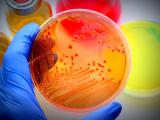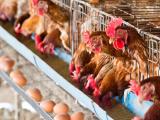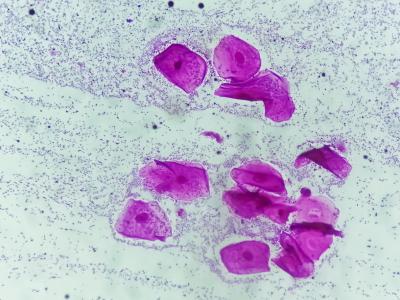Apr 8, 2010
Groups pressure feds to speed review of triclosansafety
Federal agencies are taking a new look at the antibacterial chemical triclosanafter inquiries from a congressman and health groups, the WashingtonPost reported today. The groups arequestioning the health effects of the compound, which is increasingly found inan array of products such as liquid soaps, hand sanitizers, clothes, and toys.Some studies have suggested that triclosan interferes with endocrine systemfunction, and some health groups have raised concerns that it can contribute tothe emergence of antibiotic-resistant bacterial strains. Rep Edward Markey,D-Mass., has pushed for a quicker review of the chemical and of rules regardingits use, which the US Food and Drug Administration (FDA) has been working onfor 38 years, the Post reported.In a statement today, the FDA said it updated its information for consumers ontriclosan. It acknowledged Markey's request for information and said the agencyis continuing to
review the chemical based on animal studies that have raisedsafety concerns. However, it added that it didn't yet have evidence torecommend changes in consumer use. The FDA said evidence shows triclosan isbeneficial in some consumer products, but it said there is no evidence that itprovides a health benefit in other products. "At this time, the agencydoes not have evidence that triclosan in antibacterial soaps and body washesprovides any benefit over washing with regular soap and water," the FDAsaid. A representative of the Soap and Detergent Association, an industry tradegroup, told the Post that concerns about triclosan are unfounded and thatconsumers need access to the products, particularly during times of increaseddisease threats.
Apr 8 Washington Post story
Apr 8 FDA statement
Cases mount in South Africa'sRift Valley fever outbreak
South Africa'sNational Institute for Communicable Diseases has confirmed five new Rift Valleyfever (RVF) cases, raising the total to 87, AllAfrica News reportedyesterday. Most of the cases arefrom Free State,where affected farms are clustered. The human cases are linked to directcontact with infected livestock or infected farms and are occurring primarilyin farmers, veterinarians, and farm workers. On Mar 30 the World HealthOrganization (WHO) issued an alert about SouthAfrica's RVF outbreak, noting the illnesses in humans andongoing cattle and wildlife outbreaks in seven of SouthAfrica's provinces. A post on ProMed-mail, theInternet-based reporting system of the International Society for InfectiousDiseases, yesterday noted that the number of deaths has risen from five to six.It said the number of human cases is low compared to earlier major outbreaks,but the number of deaths is unusual, given that RVF is generally a
mildinfection.
Apr 7 AllAfrica News story
Mar 30 WHO statement
Apr 7 ProMed-mail post
Pennsylvania warns consumers about campylobacater in raw milk
The Pennsylvania Department of Agriculture has suspended the permit of a dairyin New Castle, Penn., from selling raw milk for human consumption after testingfound Campylobacter in its raw milk samples and the state's healthdepartment received new reports of consumers who got sick after drinking rawmilk from Pasture Maid Creamery. State officials today in a statement warnedconsumers about the findings and advised those who have purchased milk from thedairy since mid March to discard it. The statement did not say how manycampylobacteriosis reports the state's health department had received. Theoutbreak is the latest in a string of raw-milk contamination incidents. In lateMarch the FDA warned consumers about a campylobacteriosis outbreak in threestates linked to tainted raw milk from a dairy in Indiana.
Apr 8 Pennsylvania Department of Agriculture pressrelease
Mar
26 FDA pressrelease



















